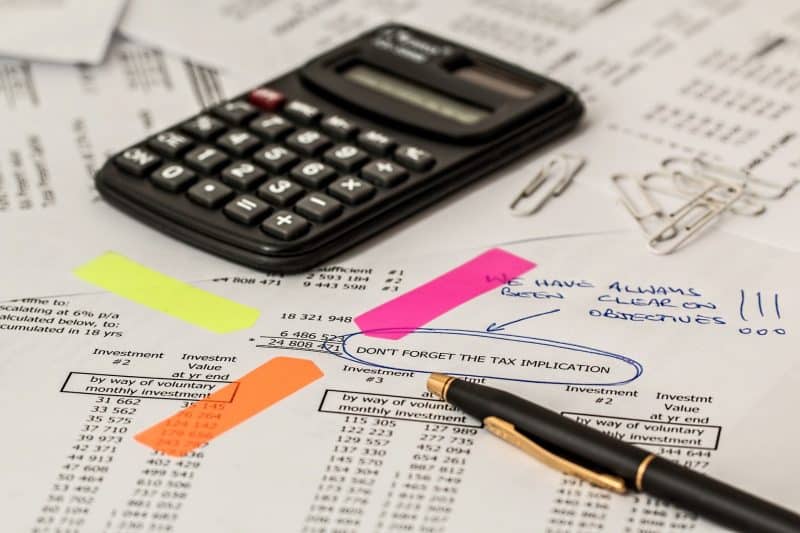The French overestimate the amount of inheritance tax they will have to pay and have little knowledge of the mechanism.
Understanding how they are calculated in order to evaluate their importance is essential when considering the transfer of one’s estate.
Here are the instructions to follow, step by step, through the example of a couple married in community of property, with two children and a common heritage of 1 million euros.
- Identify the assets that are part of the estate
When couples are married without a marriage contract, all assets (housing, car, securities…) purchased during their union are common.
At the death of the first of them, half of these assets become part of the estate and will go to his heirs, including the surviving spouse.
The other half continues to belong to him.
The estate then includes the assets that belonged to the deceased (those acquired before the marriage or received by donation or inheritance, even afterwards).
Be careful, the income from the own property is common property. If the deceased owned a property that he rented out, the rents are common property as explained by the solicitor network.
- Assessing the value of the estate
The real estate assets are evaluated at their market value, except for the couple’s main residence which generally benefits from a 20% deduction upon the death of the first spouse.
As for the furniture (beds, tables, silverware…), it is possible to retain a flat rate of 5% which is calculated depending on all the other assets of the estate.
However, it is often preferable to estimate the furniture by making a detailed inventory (their value is often less than 5% of the value of the house).
- Calculating the share of the estate for each child
In the absence of a will or a donation to the surviving spouse, the children share either three quarters of the estate (if their surviving parent opts for one quarter of the estate in full ownership), or they share the bare ownership of the entire estate (if the survivor opts for usufruct).
This second case is, by far, the most frequent.
The spouse does not pay any duty on his or her share of the estate.
As for the value of the bare ownership of the children, it is evaluated according to a scale fixed according to the age of the usufructuary parent.
For example, on an estate valued at 500,000 €, the bare ownership is worth 400,000 € if the surviving spouse is between 81 and 90 years old (80% of 500,000 €) and is worth 450,000 € if he or she is 91 years old or older (90%).
- To abate 100,000 (E) of the deduction from which each one benefits
The value of the bare ownership is shared between the children.
From their individual share, the allowance currently fixed at 100 000 €, from which each one benefits, must be deducted.
For example: on a bare ownership of 400,000 €, each receives 200,000 € and is taxed on 100,000 € (after deduction of the allowance of 100,000 €).
This deduction is only fully effective if the deceased did not make any donation to his children in the 15 years preceding his death.
If the children have benefited from it, the 100,000 € deduction has already been used or has been used up. In this case, only the balance is available.
Example: if the children already received 70,000 € ten years before the death, only 30,000 € of the allowance remains to be deducted.
All donations made by the deceased under 15 years are taken into account, whether they are handmade or notarized, with the exception of family donations of cash, which are exempt up to 31,865 € (these are gifts of money made to a child who has reached the age of majority before 80 years).
Donations declared to the tax authorities for more than 15 years are ignored when calculating the inheritance tax.
- Apply the progressive scale
On the net taxable share of each child, the scale of inheritance tax “in direct line” is then applied.
This scale is progressive.
As the taxes are calculated child by child, the bottom of the scale (taxed at 5% and 20% up to 552 325 €) is used each time.
As a result, the more children there are, the lower the tax payable.
Example: for a taxable asset of 400,000 €, the rights to be paid are 58,194 € in the presence of an only child, 36,388 € if there are two children (18,194 € per child) and 14,582 € for three children (4,861 € per child).
- Estimating the inheritance tax on the surviving spouse’s estate
When the second spouse dies, the children are taxed on the surviving spouse’s assets.
Namely: half of the joint property he/she owned, his/her own property and, possibly, one quarter of his/her spouse’s estate which he/she inherited.
If he/she had opted for the usufruct of his estate, the children do not pay any tax on the value of this usufruct which falls to them when the surviving parent dies in turn.
Example: the children are only taxed on the 500,000 € of joint property that belonged to the survivor. The 100,000 € of usufruct will revert to them without additional tax.
If the surviving parent has not made a donation to them in the last 15 years, the children receive another 100,000 € allowance on their share and each of them benefits from the bottom of the inheritance tax scale.
- Summary for the entire estate
To find out the level of taxation of the family estate to be passed on, simply add up the taxes due by each child after the death of each parent.
Thus, according to the estimations the solicitor network, for a joint estate of 1,000,000 €, the taxes to be paid total are 136,388 € in the presence of one child, setting a tax rate of 13.64%.
With two children, this rate falls to 9.28% (92,776 €) and to 4.92% with three children (49,164 €).
Nicolas BRAHIN
Lawyer of the Bar of Nice
Specialist in banking and financial law
Panthéon-Sorbonne University
Cabinet BRAHIN Avocats
nicolas.brahin@brahin-avocats.com
Read more











